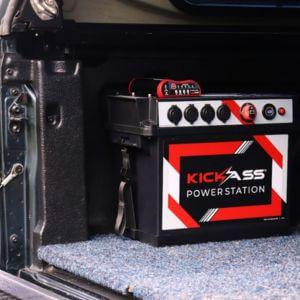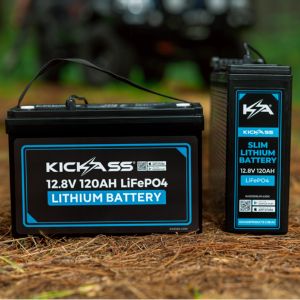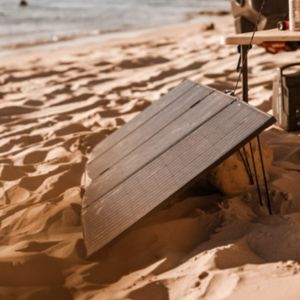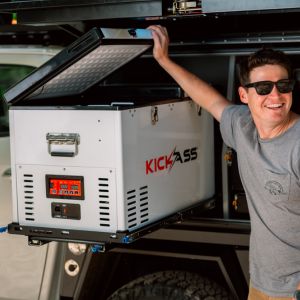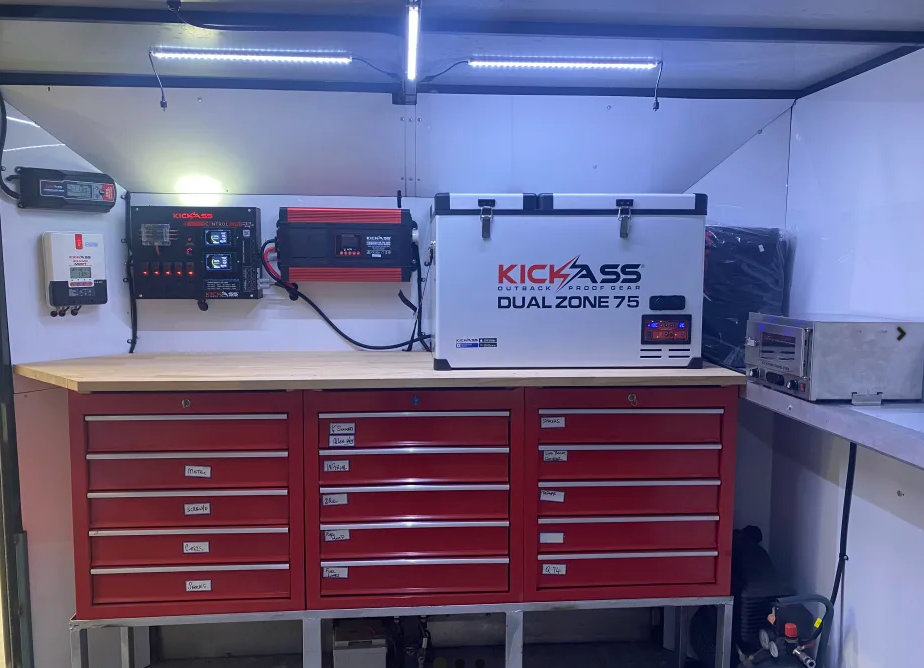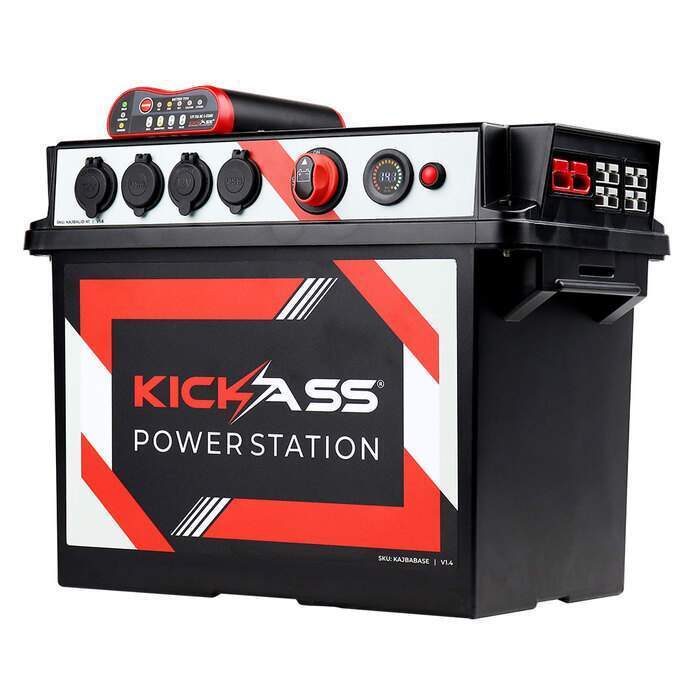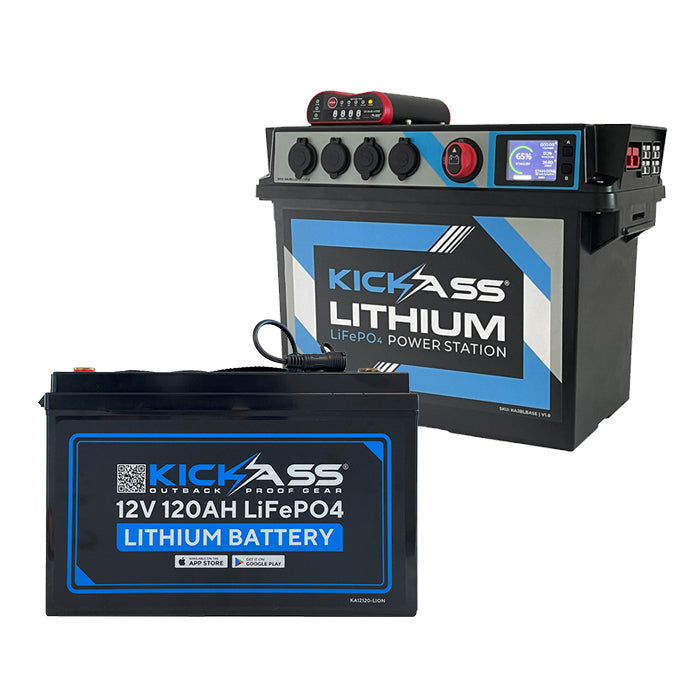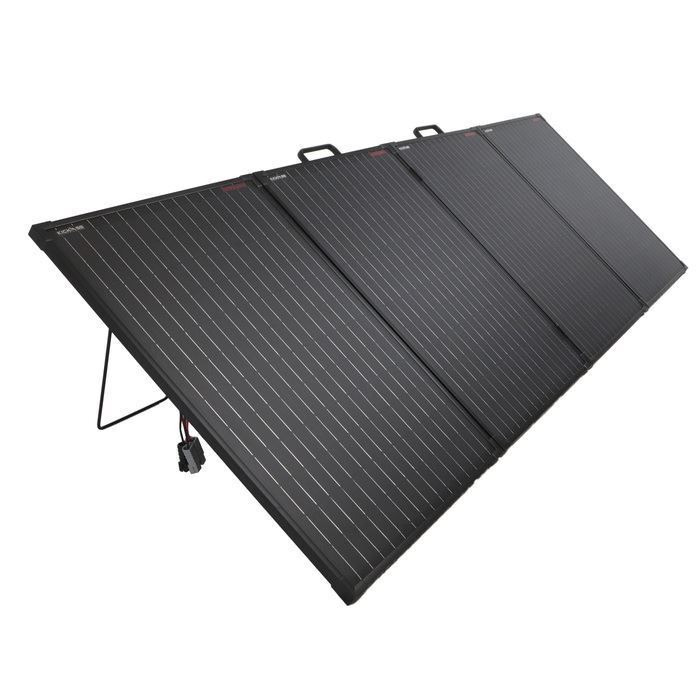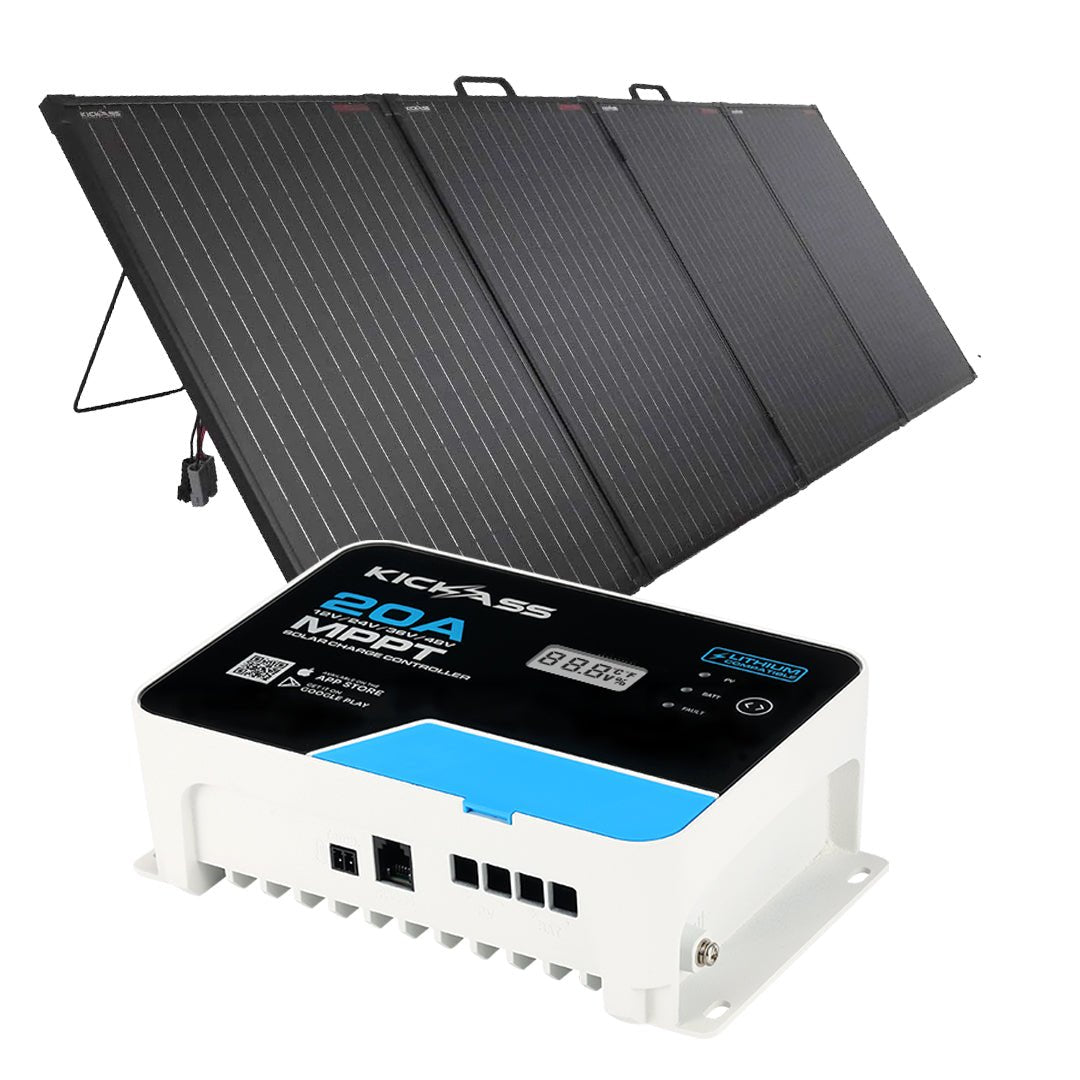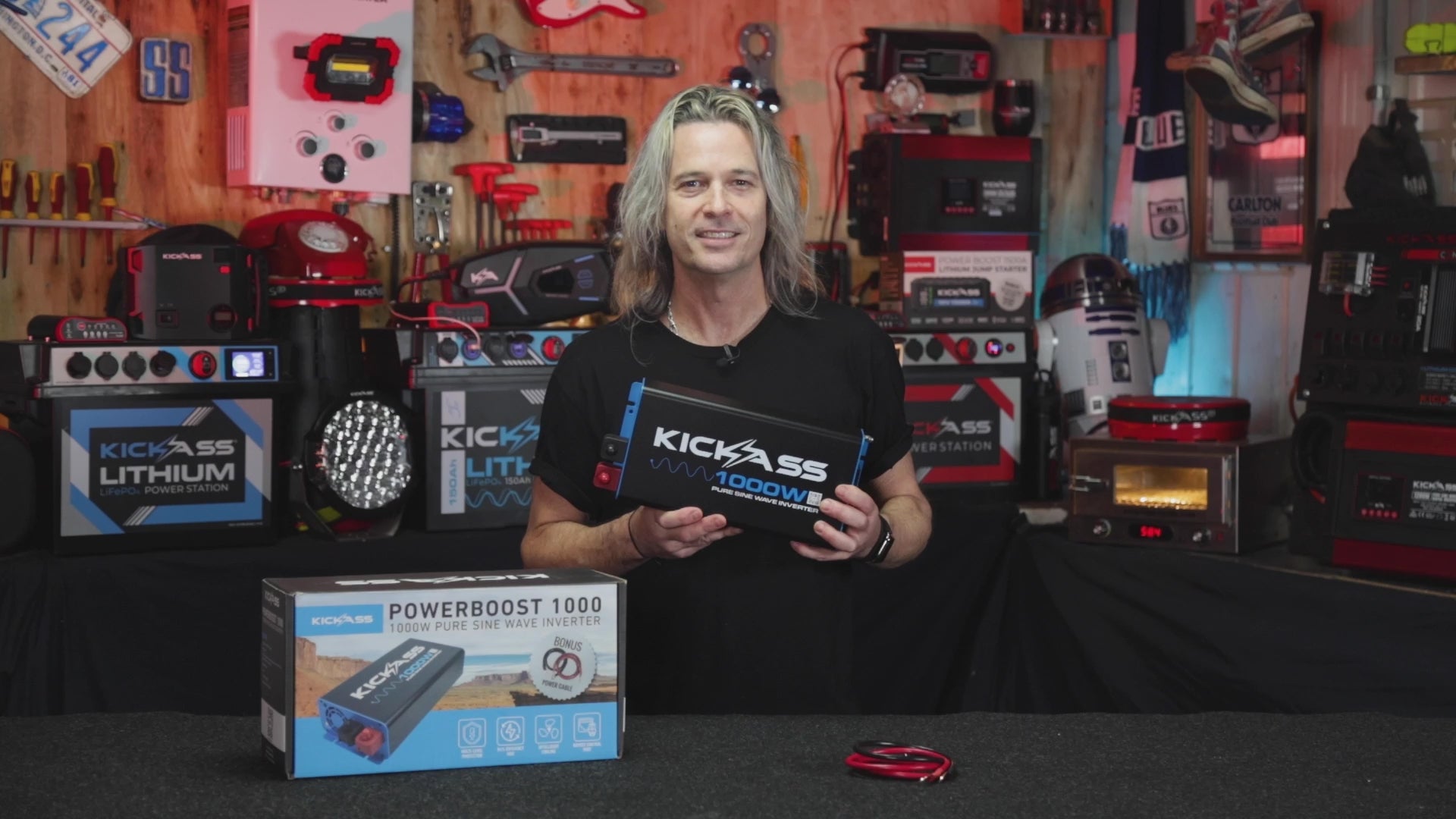
Watch our video on Managing Multiple Appliances in an Off-Grid System Without Overloading
KickAss Products
Managing Multiple Appliances in an Off-Grid System Without Overloading
FAQ: Managing Multiple Appliances in an Off-Grid System Without Overloading
How to set up an off-grid solar system?
Can an off-grid solar system work without batteries?
What size solar panel is needed to charge a 12V battery?
Our blog
Discover more guides, tips and tricks for powering up your outdoor adventures!
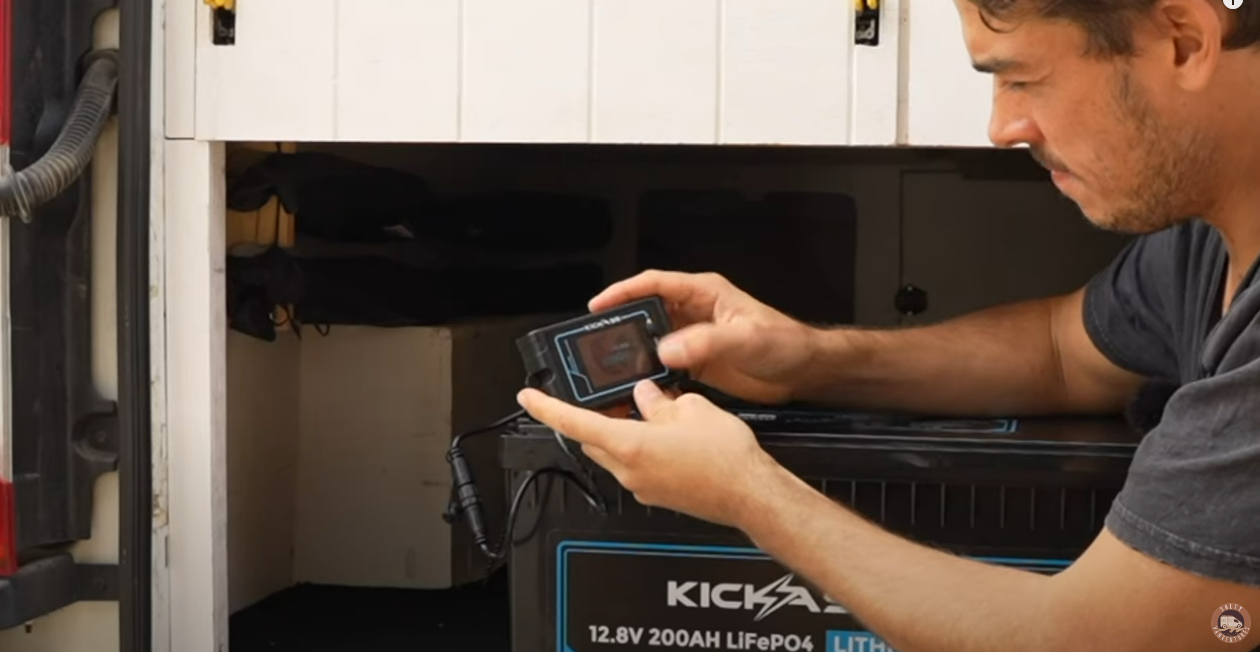
Battery Monitors and Alerts – Your Key To Keeping Your Battery System Safe
If you're preparing for an off-grid adventure, ensuring your battery system is reliable is critical. Whether you're powering a 12V fridge, charging devices, or running an electric BBQ, your battery...
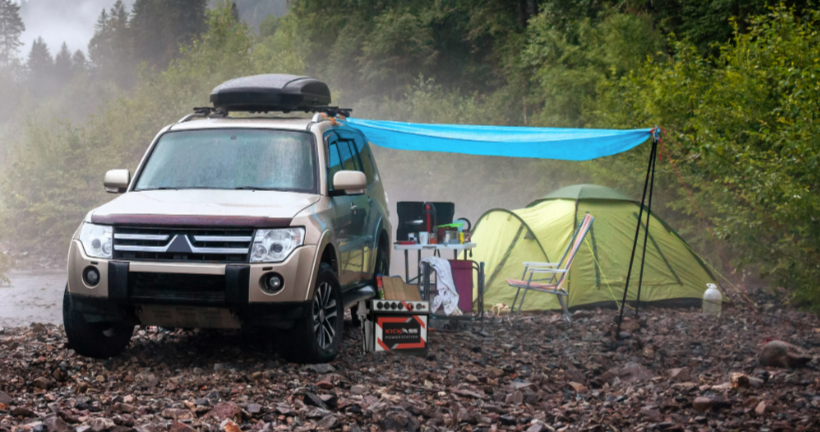
Off-Grid Camping for Beginners: Must-Have Power Gear
If you’re planning your first off-grid camping trip, you’re probably looking forward to some peace, quiet, and adventure away from city life. However, going off-grid doesn’t mean you have to give u...
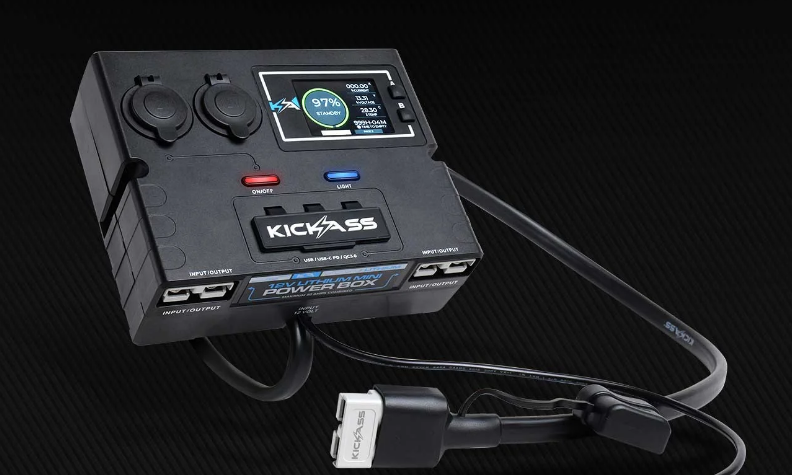
Step-by-Step Guide to Installing Your KickAss Lithium 12V Control Box with LCD Screen
Setting up your KickAss Lithium 12V Control Box with LCD Screen can greatly improve your off-grid experience by providing a dependable hub to manage all your devices. With the ability to charge mul...
